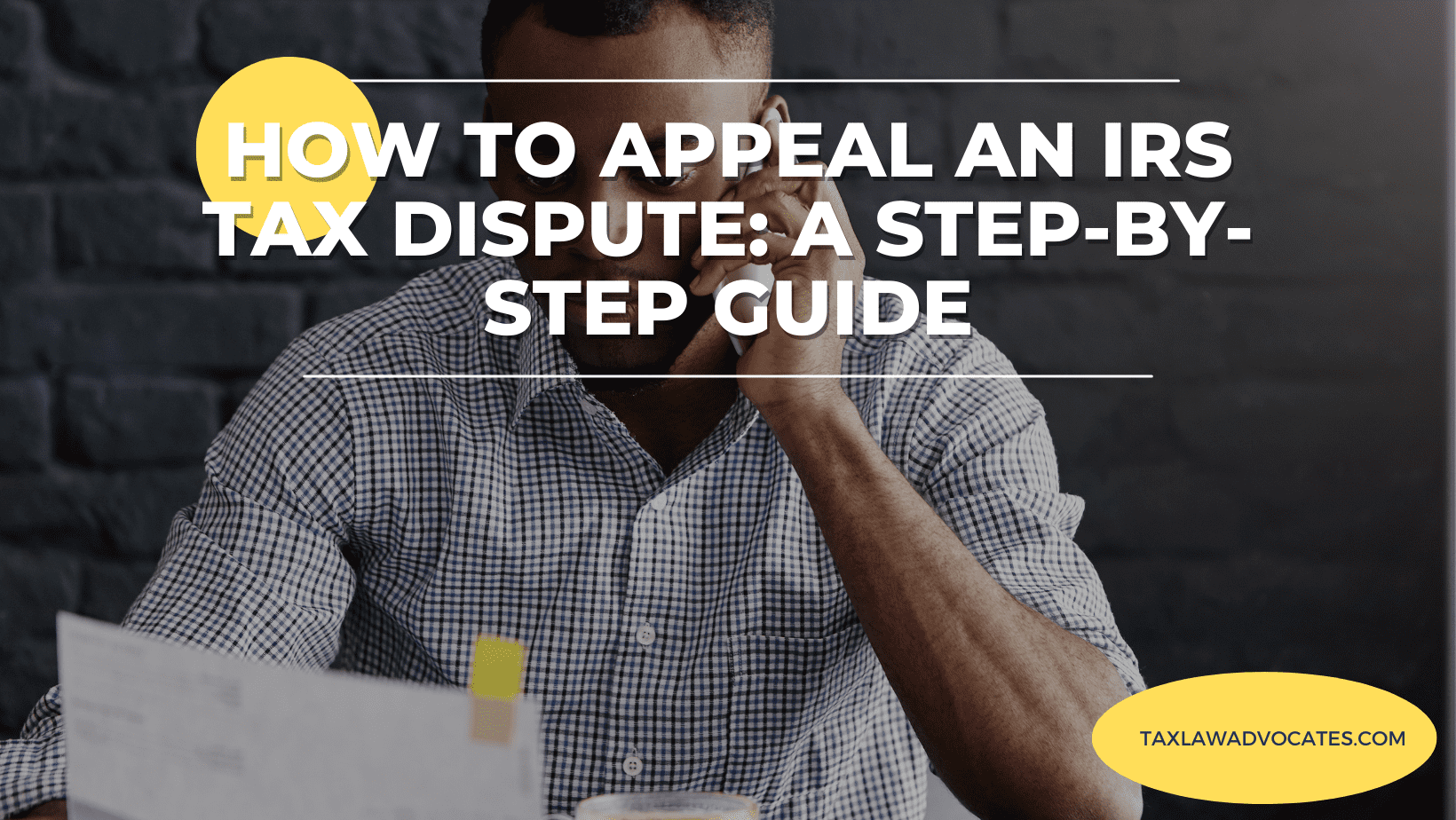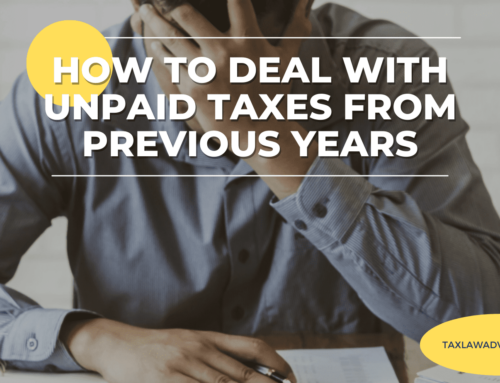Receiving an unfavorable IRS decision can be frustrating, especially if you believe the tax agency made an error. Fortunately, the IRS allows taxpayers to appeal disputes, giving them an opportunity to challenge incorrect assessments, penalties, or audit findings.
At Tax Law Advocates, we specialize in IRS appeals and tax dispute resolution, helping individuals and businesses fight unfair tax determinations. In this guide, we’ll walk you through the appeals process, what to expect, and how to maximize your chances of successfully reversing an IRS decision.
What Is an IRS Tax Appeal?
An IRS tax appeal is a formal process that allows taxpayers to dispute audit results, tax assessments, penalties, or collection actions without going to court. The IRS Office of Appeals is an independent department within the IRS that reviews cases fairly and impartially, aiming to resolve disputes without the need for litigation.
You may be eligible to file an appeal if:
✅ You disagree with the IRS’s tax determination on your return.
✅ You have sufficient evidence to challenge their decision.
✅ You file the appeal within the required time limit.
By appealing an IRS decision, you may be able to reduce your tax liability, eliminate penalties, or reach a more favorable resolution.
Step 1: Determine If You Qualify for an Appeal
Not every tax dispute is eligible for an appeal. The IRS provides clear guidelines on which cases qualify for appeal, including:
- Audit Determinations: If you disagree with the outcome of an IRS audit.
- Tax Penalties & Interest: If you believe penalties were incorrectly assessed.
- Tax Debt Collection Disputes: If you want to challenge IRS liens, levies, or wage garnishments.
- Offer in Compromise Rejections: If the IRS denied your request to settle tax debt for less than what you owe.
Cases not eligible for appeal include:
❌ Frivolous claims or arguments against federal tax law.
❌ Disputes where you failed to follow IRS procedures or missed deadlines.
If you’re unsure whether your case qualifies, Tax Law Advocates can assess your situation and determine the best course of action.
Step 2: Review the IRS Letter & Deadline
Before filing an appeal, carefully review any IRS notice or letter you received. These letters usually provide:
📌 The IRS’s decision and explanation of their findings.
📌 A deadline for appeal (typically 30-60 days).
📌 Instructions on how to submit an appeal request.
🔴 Important: If you miss the IRS’s deadline, you may lose your right to appeal. If you need more time, you may be able to request an extension by contacting the IRS directly.
Step 3: Gather Supporting Evidence
To successfully appeal an IRS decision, you need to provide strong supporting documentation. Common types of evidence include:
📄 Tax returns & financial records
📄 Bank statements & income documentation
📄 Proof of deductions & credits (such as receipts or invoices)
📄 Correspondence with the IRS
📄 Legal or tax opinions from a professional
The stronger your case, the better your chances of negotiating a favorable resolution.
Step 4: Submit a Formal Written Protest
For most appeals, you’ll need to submit a written protest to the IRS Office of Appeals. Your protest letter should include:
1️⃣ Your name, address, and taxpayer identification number (SSN or EIN).
2️⃣ The specific IRS decision you are appealing.
3️⃣ A detailed explanation of why you disagree with the IRS decision.
4️⃣ A summary of facts and legal arguments supporting your position.
5️⃣ Copies of all relevant documents as supporting evidence.
6️⃣ Your signature, verifying that all information is true.
🔹 For disputes under $25,000, you may qualify for a small case request, which simplifies the appeal process.
🔹 For larger disputes, a formal protest letter is required. If you need assistance drafting your appeal, Tax Law Advocates can help prepare a compelling case.
Step 5: Wait for IRS Review & Attend Appeals Hearing
Once your appeal is submitted, the IRS will review your case and may schedule a hearing with an IRS appeals officer.
✅ This hearing is not a court trial, but a more informal process where you can present your arguments and negotiate a resolution.
✅ You have the right to legal representation—it’s highly recommended to have a tax attorney present.
✅ The appeals officer will review your evidence, tax law, and IRS policies to determine whether the original decision should be upheld or revised.
The appeals process can take several months, depending on case complexity.
Step 6: Consider Tax Court as a Last Resort
If your appeal is denied or you are unsatisfied with the outcome, you may challenge the IRS in Tax Court.
🟢 U.S. Tax Court – Handles disputes before taxes are paid (best for challenging IRS assessments).
🟢 U.S. District Court or Court of Federal Claims – Handles cases where you’ve already paid the disputed amount and are seeking a refund.
Going to court is a lengthy and costly process, so it’s best to resolve the dispute through appeals whenever possible.
Tax Law Advocates can help evaluate whether tax court is the right option and represent you if litigation is necessary.
How Tax Law Advocates Can Help with IRS Appeals
The IRS appeals process can be complex, but you don’t have to face it alone. At Tax Law Advocates, we provide:
✔️ Comprehensive Case Review – We assess whether your case qualifies for appeal.
✔️ Strategic Appeals Planning – We develop a strong legal argument with supporting evidence.
✔️ Formal Protest & Documentation – We prepare and submit a well-structured protest letter.
✔️ Representation Before IRS Appeals Officers – We handle negotiations on your behalf.
✔️ Litigation Support – If necessary, we assist with Tax Court cases.
Final Thoughts
If you disagree with an IRS decision, filing an appeal can help reduce your tax liability, remove penalties, or correct errors. The key steps include:
✔️ Determining if you qualify for an appeal
✔️ Reviewing IRS notices and deadlines
✔️ Gathering supporting evidence
✔️ Submitting a formal written protest
✔️ Attending an IRS appeals hearing
✔️ Considering Tax Court as a last resort
At Tax Law Advocates, we specialize in IRS appeals and tax dispute resolution. If you’re facing an unfair tax assessment or penalty, call us today at 855-612-7777 for a confidential consultation. Our expert team is ready to help you fight back against IRS decisions and protect your financial future.






